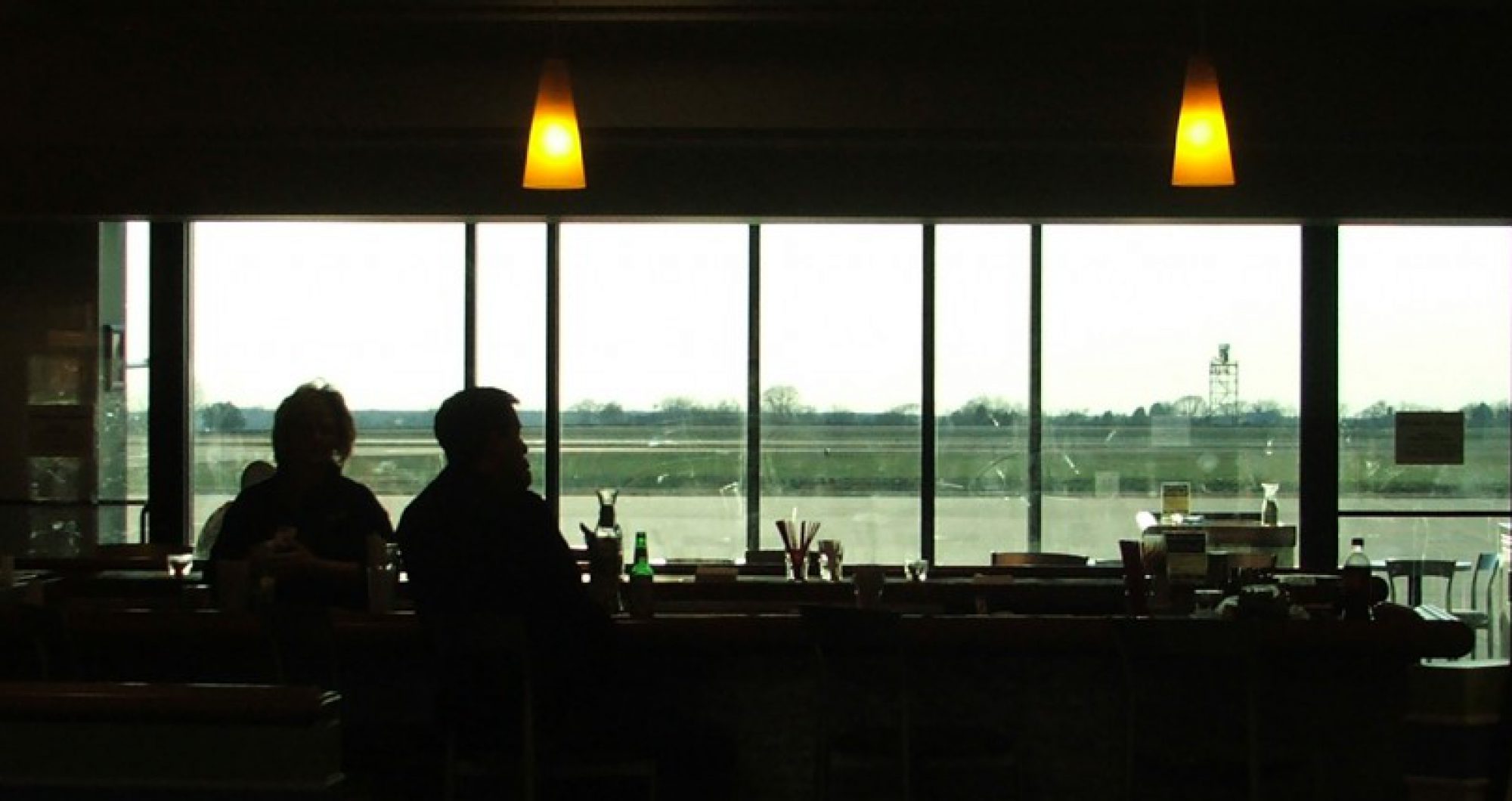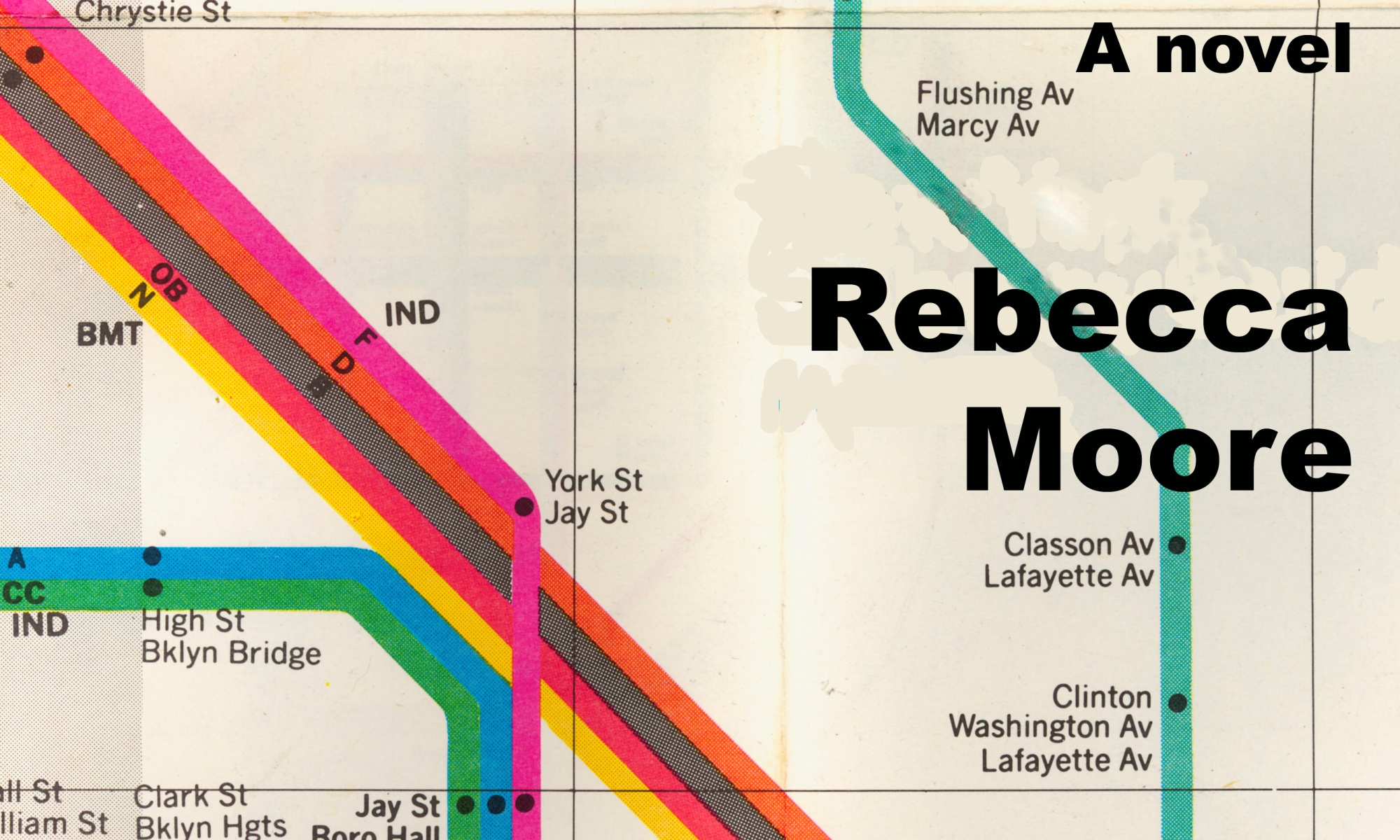 The Wertis is delighted to present an exclusive interview with author Rebecca Moore, who after publishing a number of stories in alternative teen magazine Sassy and getting taken to a few lunches and coffees with editors, disappeared off the face of the earth, never to be heard from again. Until now.
The Wertis is delighted to present an exclusive interview with author Rebecca Moore, who after publishing a number of stories in alternative teen magazine Sassy and getting taken to a few lunches and coffees with editors, disappeared off the face of the earth, never to be heard from again. Until now.
We meet for a casual breakfast of homemade waffles. We are intermittently interrupted by the dog ringing his bell to go outside and the low hum of ongoing demands of morning in a household with children, hers, mine.
Moore published Lunch in Brooklyn, a novel she wrote as her MFA thesis at Columbia University. The novel was excerpted in a three-part serial in Sassy in 1993-94. Moore was thrilled to receive letters from readers who had connected with the stories.
“As a writer,” she says, “it is an amazing feeling to connect with readers, even more amazing when your readers are writing for permission to reprint your words on a T-shirt.”
Moore was initially hopeful that the book would find a publisher, but it did not, which was sad.
A year later, Moore and her husband moved to London. Her life shifted, she lost confidence in her voice, had children, lacked time. But over the past few years, Moore has discovered online queries, including this blog post, and has been contacted by other Sassy readers as to the fate and availability of the book. She decided to shake the dust off the manuscript and toss it out into the world.
“With the emergence of online publishing, I thought it was better for the book to become available than for it to continue to languish in a box, just another mystery for my daughters to contemplate after my eventual demise.”
That was cheerful. Thanks. What inspired the book?
“The book started out as a couple of different stories,” she says. “One was entitled ‘8th Grade’ about girls behaving badly over the course of an unsupervised weekend, which is now the chapter of the book called Fifth Hex. I was trying to capture that weird edge of pushing against the boundaries of what you could do in the absence of parental supervision, a brush with danger, the sense girls that age have of wanting to be noticed and that feeling of immunity to real danger, the way you do things just to have done them.
“Another story was based on a tradition we had in middle school where at the end of the year the 8th graders would write a last will and testament and hand something down to a 7th grader to have in 8th grade. My friend who was moving up bequeathed me her bubblegum chain, which was something like 10 feet long and had in it gum wrappers that probably went back to when we were in lower school. There was a poignancy in that that I wanted to express, how we were shedding our childhoods and stepping forward into adolescence.
“The strange thing about the late 70s,” she continues, “was that it was a time when all of the grown-ups were having a second adolescence. Popular culture was rife with sex and drug jokes and self-actualization. It was like massive sort-of California-oriented era. Another thing I wanted to capture was the disconnect between the nurturing, empathic quality of my school with the snake-pit atmosphere we students could impose on each other. What was up with that? I thought I was the only one who felt that way, but when Facebook came along people shared all sorts of memories and reactions to those days that surprised me.”
What were you like in Middle School? Were you like Kate?
“I was sensitive to other people’s opinions of me, but less concerned with the idea of popularity, and less popular in the click-y sense, but I also had a more diverse and interesting group of friends. I don’t think I categorized people the way she did. But I do remember being kind of down in 8th grade and not feeling particularly connected.
“I reconnected with a middle school friend a few years ago. In the exchange of life stories she said that she had thought of me recently because her son, then a 9th grader ‘had writing on his shoes – messages from friends – and I was recalling that I had this friend in Middle School who wrote on her jeans; that it was kind of a thing to do then … You wrote this thing I have thought about a few times over the years, don’t know why: God is alive and well and signing bibles at Brentano’s. Pretty advanced for an 8th grader!'”
Moore laughs. “It’s funny because of all the stuff I dredged out of my memory about the kinds of stuff we did, I had forgotten about writing on jeans. I don’t even remember that as the kind of thing I would have written. When I think of myself at that age I feel a general sense of ugh. Even when we think of ourselves at that age we lack some kind of basic perspective that I hope we all gain as we get older, but maybe not about our young teen selves. We have this rigid way of perceiving ourselves, even in retrospect, that does not take into account other viewpoints or possibilities and so does not allow us the sense of capacity for change, which of course is tragic and ridiculous. We see what matters most at that moment. That was the sense I trying to convey at the end of the book, when Kate leaves school for the last time, she has the idea that memories solidify into something fossilized.”
It is time to drive the younger daughter to the pool so we conclude our interview. Moore says that she would be happy to continue the conversation another time. You can find her at her blog, Lunch in Brooklyn. The book is published in a variety of digital formats and can be purchased on Amazon, Smashwords or itunes.



Another very clever, witty, entertaining blog. Will definitely pick up a copy of “Lunch”.
LikeLike
this is very meta of you! i will be getting a copy of Lunch ASAP (and by ASAP i mean, as soon as i can figure out how to download it onto a device i don’t use!). Congrats!
LikeLike